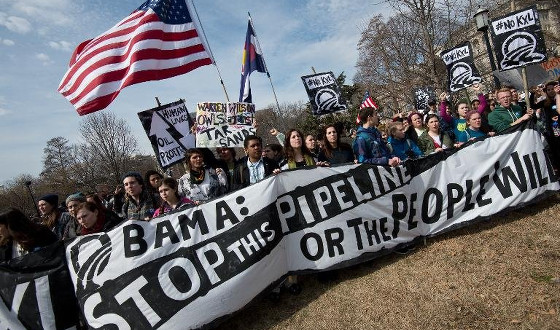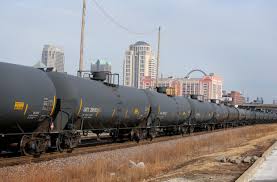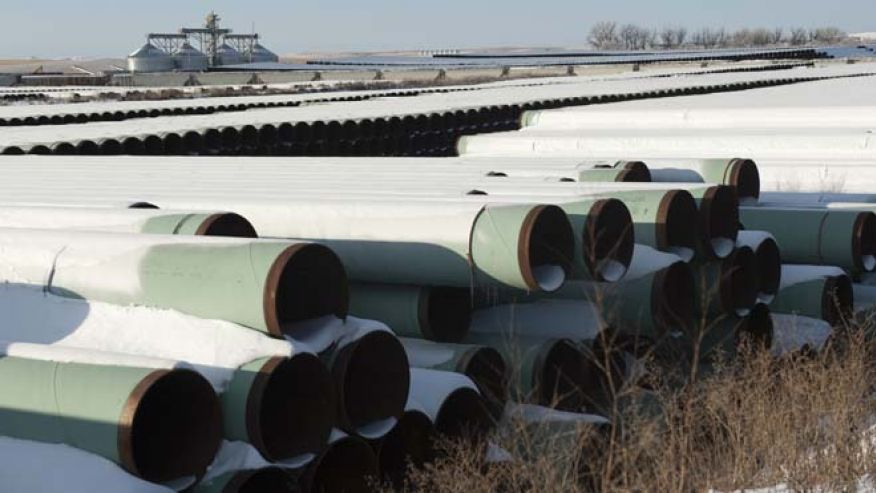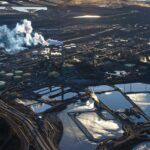January 7, 2015 – I’m not sure if the Keystone XL is the most notorious pipeline that has yet to be built but it sure has come to symbolize to environmentalists a line in the sand that cannot be crossed.
Yesterday the press secretary for President Barack Obama indicated that should this new session of the U.S. Congress vote to approve Keystone XL, the President will veto it. The Congress will attempt to override the veto but it appears the votes aren’t there.
President Obama legally justifies his position by stating that the Congress is attempting to hijack the environmental and route approval process with a premature vote. At the same time he has stated that Keystone XL provides little in the way of economic benefit to the United States other than creating some temporary construction jobs and supplying heavy crude to already existing Texas Gulf of Mexico refiners who can find other sources of oil. The President points to the fact that America is now self sufficient in oil from domestic sources and that oil coming through Keystone XL is not needed. In other words the pipeline delivers very little to America’s domestic agenda.
For environmentalists who see Keystone XL as a pivotal point in addressing the issue of mitigating climate change, the act of the President to veto the pipeline is seen as a victory. The President, however, is not using the environmental argument to back his decision. And truth be told, delaying or canceling Keystone XL is, as an environmental statement, more symbolic than real. That’s because the oil sands continue to produce and export more each year. The heavy crude with added diluent continues to flow through pipelines, or gets loaded on rail cars that find their way to refineries both in the United States and Canada. Yet no environmentalists are drawing lines in the sand to block trains. Nor are environmentalists standing in protest beside current pipelines containing oil sands product.
The argument for stopping the flow shouldn’t be economic unless the economics is tied to the environment. That’s because fighting to stop Keystone XL may prove to be far more damaging to the environment in the short term than stopping the pipeline from being built. Tanker cars like those that derailed and exploded in 2013 in Lac Megantic, Quebec, are in high demand because pipeline capacity in North America has maxed out. So that means trains are picking up the new production and those tanker cars pass through Canadian and American towns and cities every day.
I describe the shipping of oil by train as “death by a thousand cuts.” Although no single oil spill from a train will be as significant as one from a pipeline, an oil tanker, or from a blowout at a drilling site, the cumulative effect of many spills will prove enormous over time, particularly when oil gets into soil and groundwater sources polluting local environments for decades if not centuries. At least a pipeline has a known physical location. We know where the oil will be spilled and if we have the right sensors and shutoff valves as a means to contain the spill quickly, and if we have equipment in place to recover and clean up as well, then we can minimize the environmental impact. We don’t have nearly as much control, however, when oil goes by train.
Of course the ultimate environmental solution is to decrease our dependency on oil and other fossil fuels. That’s why I would have appreciated a more cogent argument for blocking Keystone XL rather than the lack of economic benefit as a partial justification by the President for his threatened veto.
In mitigating climate change, our sources of carbon-based energy represent the problem and challenge. In the absence of solutions that neutralize the carbon dioxide contribution to the atmosphere and ocean that comes from creating energy from oil, burning more carbon seems utterly stupid. But that is what we continue to do.
Of course the oil industry believes that market forces should determine the outcome and not a Presidential veto. The industry hopes that by filling the back pockets of so many in Congress it can influence the decision on getting oil into pipelines and out to world markets. The industry forgets that one benefit of being a lame duck President is his or her freedom to say “no.” After all, President Obama no longer has another election to run. He will vacate the office in 2016.
Maybe the decision on Keystone XL will hang around for the next President. Or maybe, Congress will get serious about climate change and recognize that feeding the market by building pipelines and tanker cars is the wrong answer to the carbon question.























I believe Obama is quite sincere (and employing a delay tactic). Like Justin Trudeau, he knows that government evaluation process should not be short-circuited in order to get broad-based buy-in. Obama also is correct on the limited economic benefit to the US as a whole (oil companies themselves will see benefit from access to more supply) – the government process for the US weighs economic benefit against environmental risk. The “pipeline vs. rail” argument is a valid one, but that is not what is being asked – it is a pipeline being approved and the justification (as far as I have seen) is not for replacing rail as a transportation method. I doubt oil interests wish to open up an argument about rail versus pipeline for transport risk as it would identify and expose significant risks from both methods – a press concern for oil.
And yes, I also think this likely waits for the next President at the rate it is going – hopefully she’ll get a mandate from the voters to weigh in one way or the other on both Keystone and the environment.
But you are correct, there are a lot of paid-for politicians on this one, so don’t be surprised if the veto override happens.